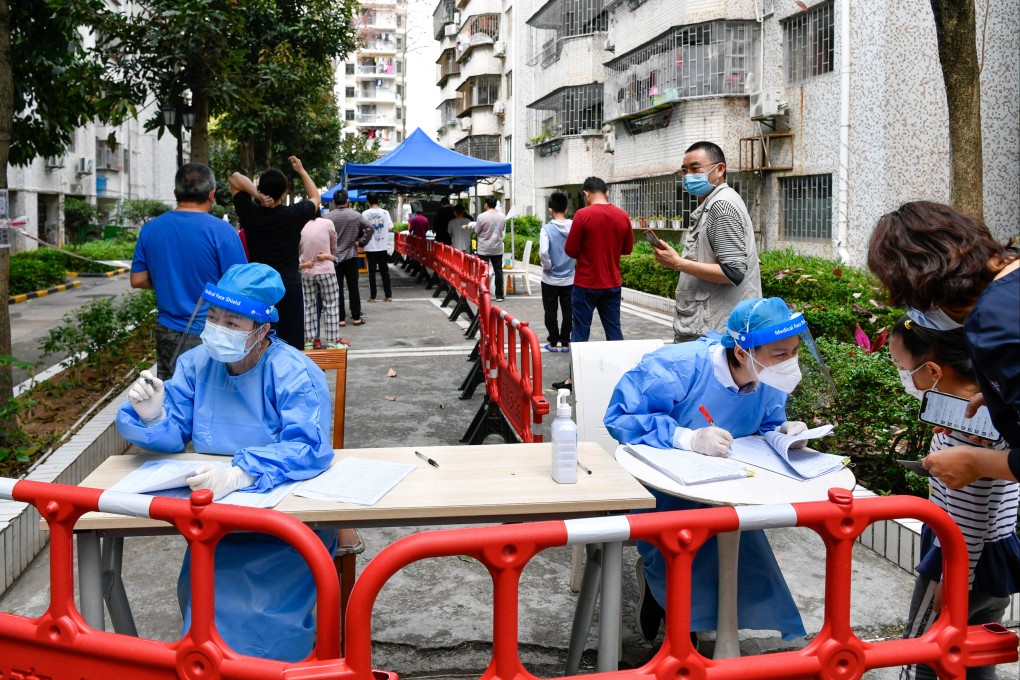Coronavirus in China: Covid tests for the dead spark online mockery in Shenzhen
- Mix of derision and understanding as web user posts screenshot of Shenzhen rules requiring Covid-negative report for cremation
- Staff member of Shenzhen’s only funeral home says application is flexible, cites eased pandemic situation

This came after a web user posted a screenshot of the “smart funeral” page in a Shenzhen Bureau of Civil Affairs app.
The page said applicants for cremation services were “required to provide proof of nucleic acid testing of the deceased, in addition to the death certificate and the notice of transporting of remains, if the deceased is from closed-off management areas, restrictive control areas and prevention areas”, referring to areas that have reported Covid-19 cases or places close by.
However, in case a nucleic acid test report of the deceased was not available, a “close-contact” relative’s test report would also do, the city’s only funeral home confirmed.
The notice sparked widespread mockery online. “Do the families need to take the dead body to get a nucleic acid test report?” some asked, while others showed some degree of understanding, saying the dead person could be carrying the virus and might need special handling.

An unidentified transport staff member at the Shenzhen Funeral Home, the only one in the city, confirmed to the news website Jiemian.com that such a report would be a necessity, but “at the moment Shenzhen has no such [control] areas, so the policy can be ignored”.